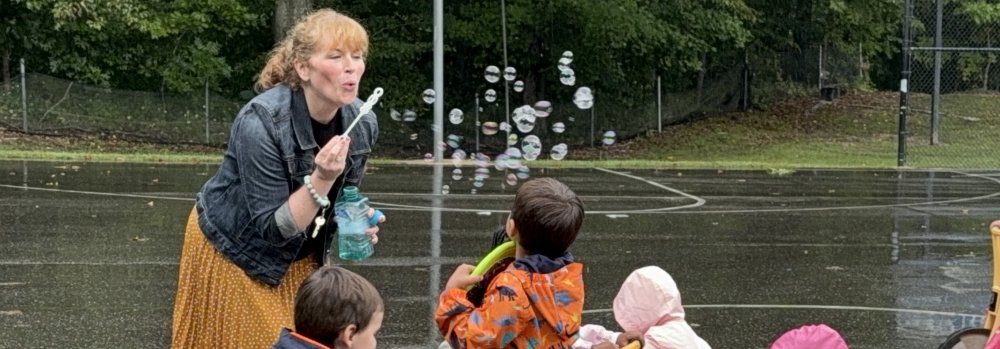We at the Calverton School feel that it is important to facilitate students’ exploration in many different areas. The Lower School special areas enrich and complement the students’ homeroom experiences. Special area teachers provide activities designed to build skills, encourage exploration and creativity, and promote problem solving and collaboration.
Early childhood music program provides opportunities for listening, singing movement, and playing percussion instruments. Traditional songs, instrument exploration, and expressive movement, round out this music experience.
Visual arts are brought into the classroom to include skill building such as painting, drawing, sculpting, cutting, and pasting. Students in all grade levels are encouraged to use their creativity and desire to explore using visual arts media.
Physical education is also an important part of the early childhood experience. Continued lessons in motor skills (running, skipping, hopping, jumping, traveling, balancing) and spatial awareness help students build their gross and fine motor development. Students work together to learn the value of teamwork and respect.
Children spend time in our Lower School library for literacy enrichment. Students are exposed to many genres of books with corresponding activities. Students listen to stories, participate in movement activities, and are provided opportunities that promote and use print awareness.
Enrichment opportunities are provided for The Early Childhood students to elevate and inspire educational curiosity for every child in our program.
Our Spanish program begins in Kindergarten with introducing the language through games, songs, movement, and pictures. Our Cougar Cubs participate in different celebrations and presentations throughout the year to begin sparking their interest and curiosity of the Spanish language.








